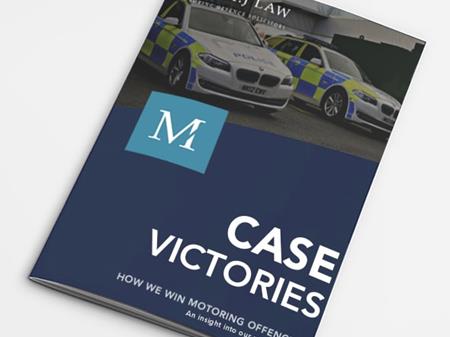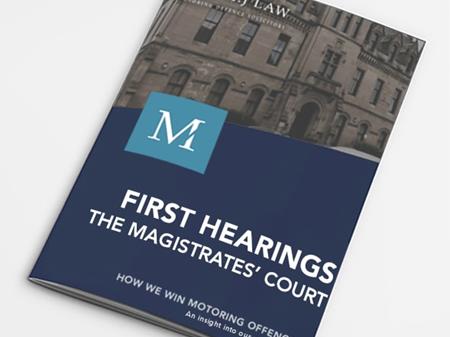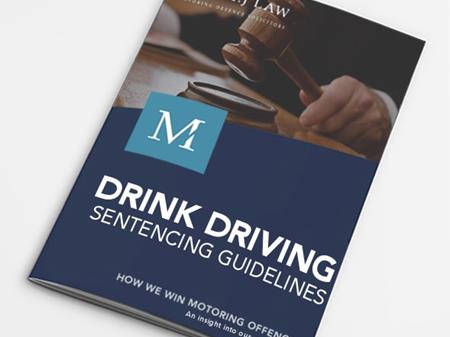
Drink driving first became an offence in 1925 with the Criminal Justice Act. The Act made it an offence to in control of any mechanically-propelled vehicle on a highway or any other public place. The penalty was a maximum of £50 and/or imprisonment for up to four months, as well as a disqualification from holding a licence for at least one year.
In 1967 Parliament introduced for the first time a legal alcohol limit. Interestingly, this limit remains the same today (80mg/100ml blood) which is surprising given the focus on road safety in recent years. In December 2014, the legal limit in Scotland was reduced to 50mg/100ml blood (22ug in breath). The High Risk Offenders Scheme was introduced in 1981.
What is considered a high reading?
The following readings are considered high;
- 70ug or above in breath
- 160mg or above in blood
- 214mg or above in urine
According to the Magistrates' Court Sentencing Guidelines, these alcohol levels can attract a disqualification of 20 months and community service. If your alcohol reading is greater, the penalty will increase. In the most serious drink driving cases you can be sent to prison.
If you're pulled over by the police, they may ask you to provide a breath sample at the roadside. The police can breathalyse you if:
- They suspect you have been drinking alcohol (smell alcohol, receive a 'tip off' etc...)
- You have committed a moving traffic offence (speeding, red light offence, no insurance etc...)
- You have been involved in a road traffic accident (even if there were no other vehicles involved)
Please remember the roadside reading is non-evidential. This means that it cannot be used in court. The police would have to take further evidential samples from you at the police station (or hospital) before you can be charged. If you refuse or fail to give further evidential samples, you could be charged with 'failing to provide' a specimen.
The evidential breath test
If you fail the roadside breath test, the police will arrest you and take you into police custody. This is usually a police station which has the facilities to take evidential samples from you. Here, a police officer will require you to provide two specimens of breath test on one of the following home office type approved devices:
- Lion Intoximeter EC/IR
- Lion Intoxilyser
- Camic Datamaster
If you have a physical or mental condition preventing you from providing a sample, the officer may make a request for a specimen of blood or urine. As you can see below, the sentencing guidelines also apply to the level of alcohol found in your blood or urine. If the reading you provide is high, the greater the risk of a longer driving ban, community service and even a custodial sentence.
If the breath reading you provide in police custody exceeds 120ug, the starting point for the court is a 12-week prison sentence. This is because the Magistrates' or Judge will consider a high breath reading as a serious aggravating factor. This can be extended to up to 6 months if there are other relevant serious aggravating factors such as:
- A previous conviction for drink or drug driving or failing to provide a specimen within the last 10 years
- You were involved in an accident
- You are charged with other offences
- You had passengers in the vehicle
- You were driving for hire or reward
- You were driving a works vehicle i.e a van, LGV or HGV
Breath readings above 120ug
A breath reading over 120ug will almost always result in a prison sentence. The Magistrates' or Judge will pay particular attention to the 'prison threshold' when it comes to drink driving cases and sentencing. If your breath reading is above 120ug, as a starting point, the Magistrates' will always consider a custodial sentence. Before the Magistrates' retire to decide on the sentence, the high breath reading and a custodial sentence will be at the forefront of their decision, even when you have advanced strong mitigating circumstances and supplied various character references to the court.
It may be beneficial to consider your options if you are facing a lengthy ban or even a prison sentence. Speak to us today for free initial advice.
What sentence will I receive?
Have you been convicted of drink driving within the last 10 years?
What type of sample did you provide?
What was the level reading for ?
Defending an allegation of drink driving where the breath reading is high
As a starting point, it may be worthwhile checking and challenging the evidence against you, even where the breath reading is high. There are various different defences that can be raised in relation to the allegation. As strange as it sounds, there is more to the prosecutions case than just a breath reading. When you are first taken into police custody to provide a sample, the police have to carry out a specific procedure with you, this is known as the MGDDA procedure. This document will guide the officer through all of the questions, legal warnings and requirements the police are required to give to you before you provide a sample. If this hasn't been carried out by the officer and you've then gone on to provide a high reading, this can be raised as a technical defence.
The role of the Crown Prosecution Service (CPS)
Generally, the CPS don't prioritise drink driving cases except where there is a strong public interest. A high breath reading alone won't encourage the CPS to build a stronger case against you. In most cases, this can make it easier to defend drink driving allegations where the prosecution are unwilling or unable to source and provide important documents or evidence. The CPS are more likely to pay particular attention to case where the following factors are present:
- Death or serious injury was caused
- The case involves a high profile person i.e. a celebrity, politician or professional sportsperson
- The police were involved in a high speed chase
- There are one or multiple previous convictions
The CPS will usually expect you to attend court for your first hearing, and enter into a guilty plea. Especially if your breath reading is high. If you attend court unrepresented, the CPS will pressure you into pleading guilty. It is important that you are able to have access to the CPS evidence so that you can make a fully informed decision. One of the first steps that we would take when representing somebody accused of drink driving, is to check the evidence against them. This is to ensure that any errors or missing pieces of evidence can be identified and raised at a first hearing.
The importance of the first court hearing
The first court hearing in a drink driving case is by far the most important. The court will set the tone for how the case should be managed by both the prosecution service and the defence. Not only does the first hearing allow for representations to be made regarding your plea, it also allows for the recommendation of timescales for CPS evidence to be provided. This point is massively important in any criminal case, because a criminal case can only be proven with the correct evidence which is provided within the timescales set by the court. The court will usually set a short timescale in which all of the prosecutions evidence should be served. If the CPS default in providing full disclosure, the case cannot be proven at court.
First appearances are particularly important in challenging a drink driving allegation but also where a guilty plea is the only option. In combination with a guilty plea, it is important to advance personal mitigation or special reasons.
Drink Driving Sentencing Guidelines
All magistrates use sentencing guidelines before passing sentence. The purpose of the guidelines is to ensure that the sentence is fair and proportionate. You will know by now that drink driving offences carry mandatory driving bans (unless the court finds a special reason). Check the chart below to work out the length of your driving ban. You can also use our DRINK DRIVING BAN CALCULATOR for an instant result.
| Breath | Blood | Urine | Disqualification |
| 36 - 59 | 81 - 137 | 108 - 183 | 12 - 16 month |
| 60 - 89 | 138 - 206 | 184 - 274 | 17 - 22 month |
| 90 - 119 | 207 - 275 | 275 - 366 | 23 - 28 month |
| 120 - 150 > | 276 - 345 | 367 - 459 | 29 - 36 month |
If you have a previous drink driving, drug driving or failing to provide within the past 10 years the minimum disqualification is 3 years. The Drink Driving Rehabilitation Course will reduce the length of ban by 25%.
Thinking of pleading guilty?
Our Case Studies take a look a real cases involving real people. You may also be interested in reading about court hearings in the Magistrates' Court and Sentencing Guidelines. You can also view our case studies page for more information.

A Summary of Recent Cases – Marcus A Johnstone
How to win the 'unwinnable' cases...

Drink Driving – Your First Court Hearing
This booklet discusses a drink driving first court hearing - Is a solicitor necessary?

Will you go to prison?
This booklet looks at the Magistrates' Court Sentencing Guidelines for drink driving
Next Steps: Please get in touch to discuss your case with a member of our team. You can use the contact form below or call 01514228020 for free initial advice. You can also use our drink driving ban calculator or check out our video series.



